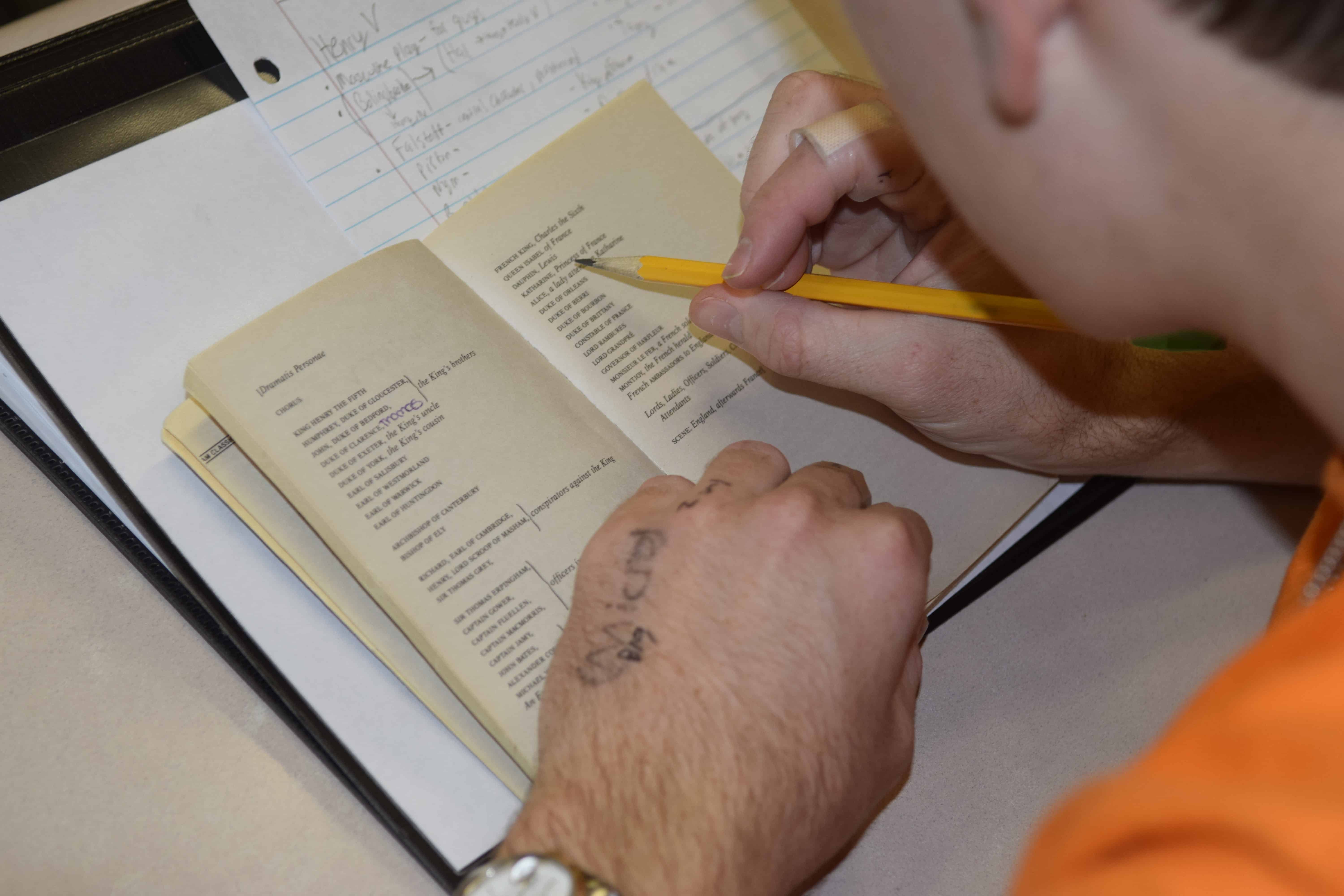As an AP English and Shakespeare instructor, I have a curious fascination with how words are used both literally and figuratively to fit a purpose or agenda.
With my Shakespeare students, I begin the year with an introduction to the Bard that includes his influence on the English language, the words he coined, and how he added both connotative and denotative meanings for existing words. With my AP Lang pupils, I discuss the evolving and organic nature of our present use of the English language and how each year we not only add new words to our lexicon, but how we add new meanings to words we already use.
One of the beautiful aspects of teaching courses focused on language is that one can always look at the world outside of the classroom and still study the art of rhetoric and how language is used (and spun) by any speaker to achieve a purpose. And there is no better place to look than at the political arena in this very important election year, especially here in North Carolina.
As an example, take the word “reform” and how it has become an important vocabulary word for those elected officials in power. The word has been used countless times to identify the many legislative policies this current GOP-led General Assembly has enacted. While the word itself has a positive denotation, what it really has become of late here in NC is an umbrella-term used to ameliorate the general public.
Officially, the word “reform” is a transitive verb defined in the Merriam-Webster online dictionary as:
a : to put or change into an improved form or condition
b : to amend or improve by change of form or removal of faults or abuses
But it has a different definition in the dictionary of our elected officials. In that lexicon, the word “reform” is defined as:
a : to put or change into a form or condition for profit for a few select
b : to amend or change in form with additional faults or abuses
2016 is a huge year. With many veteran GOP legislators not seeking reelection and a surely contested gubernatorial race, we in North Carolina have an opportunity to add our own meanings to words in the dictionary used in Raleigh. Here are just a few that alphabetically appear on the same pages as “reform.”
- Recommit – to pledge to fully fund public schools so they are not lacking for resources or personnel
- Redact – to edit legislation that has previously negatively impacted public schools
- Redeem – to transfer monies given to for-profit virtual schools and frivolous charter schools back to public schools
- Rediscover – to again realize that our state constitution mandates our government fully fund public schools
- Refrain – to keep from placing politics and personalities before students’ well-being
- Reinvigorate – to give more voice to teachers and educators in school improvement initiatives as they are the people in the classrooms
- Renew – to place a new focus on student progress rather than arbitrary test scores
- Replace – to exchange current systems of testing and evaluation protocols with ones that truly measure teacher effectiveness and student progress
- Respect – to value teachers with both monetary compensation and freedom to do their jobs
- Restore – to bring back due process rights and graduate pay for new teachers
- Resurrect – to bring back the North Carolina Teaching Fellows and stimulate more growth in our collegiate education programs
- Revise – to review how the General Assembly is allowed to craft bills and legislation behind closed doors without proper debate
- Revitalize – to allow our school system to have the power and right to make improvements as they see fit
- Revive – to focus on all traditional public schools and their health before haphazardly constructing superfluous charter schools and virtual campuses
- Revoke (two definitions) – a: to cancel and annul reactionary legislative acts that are simply repackaged, unproven educational alterations which recycle and reinstitute unproven practices that lead to a relapse of regression and regret and rely on resources created by for-profit companies which remove the importance of the teacher in the classroom and reject what educational researchers have identified as vital to the health of public education (shortened definition); b: to take away the legislative power of those who have harmed public education by electing legislators in 2016 who have public education’s best interests in mind.
And that’s just words that begin with “re.”
As the campaign commercials and advertisements become more frequent and riddled with political spin and stretched truths, just remember that the meanings of words can be manipulated like “reform” and that innocuous slogans like “Carolina Comeback” can be misleading.
In these next 10 months, visit your local public schools, ask teachers, parents, and students what obstacles could be removed to improve conditions and vote for those candidates in November who are willing to remove those impediments.
Maybe then we would not have to worry about having to “reform” and improve. We could spend more time and energy on nurturing and building upon what we have.



